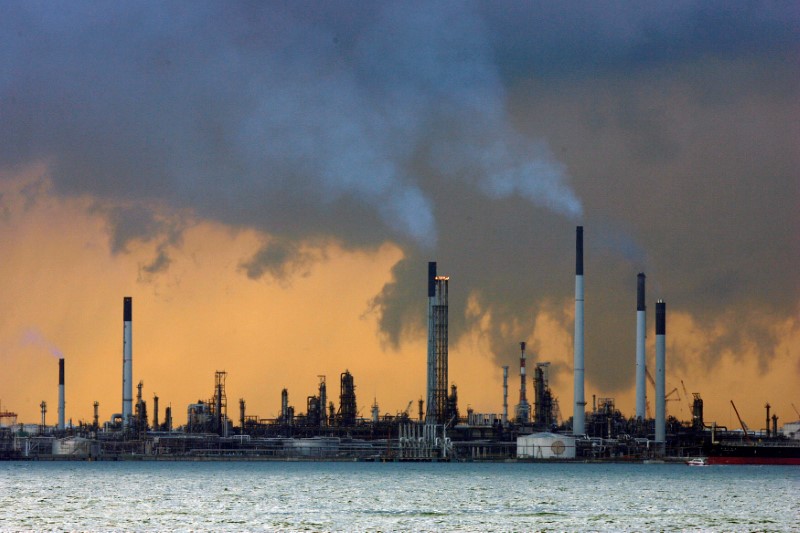* North Sea pipeline outage supports Brent crude prices
* U.S. drillers cut amount of rigs for first week in six
* But U.S. production is still approaching 10 million bpd (Add comment, updates prices)
By Henning Gloystein
SINGAPORE, Dec 18 (Reuters) - Oil prices rose on Monday amid an ongoing North Sea pipeline outage and signs that booming U.S. crude output growth may be slowing, although the 2018 outlook points to ample supply despite production cuts led by OPEC.
U.S. West Texas Intermediate (WTI) crude futures CLc1 were at $57.66 a barrel at 0634 GMT, up 36 cents, or 0.6 percent, from their last settlement.
Brent crude futures LCOc1 , the international benchmark for oil prices, were at $63.59 a barrel, up 36 cents, or 0.6 percent, from their last close.
Traders said the slightly higher prices came on the back of the North Sea Forties pipeline system outage, which provides crude that underpins the Brent benchmark, as well as indicators that U.S. oil production growth may be slowing. Sea operator Ineos declared force majeure on all oil and gas shipments through its Forties pipeline system last week after cracks were found. force majeure ... is acting as a major prop for crude," said Sukrit Vijayakar, director of energy consultancy Trifecta.
In the United States, energy companies cut rigs drilling for new production for the first time in six weeks, to 747, in the week ended Dec. 15, energy services firm Baker Hughes said on Friday. this dip in drilling, activity is still well above this time last year, when the rig count was below 500, and actual U.S. production C-OUT-T-EIA has soared by 16 percent since mid-2016 to 9.8 million barrels per day (bpd).
This means U.S. output is fast approaching that of top producers Saudi Arabia and Russia, which are pumping 10 million bpd and 11 million bpd respectively.
The rising U.S. output also undermines efforts by the Organization of the Petroleum Exporting Countries (OPEC), which is de facto led by Saudi Arabia, and a group of non-OPEC producers including Russia to withhold production to tighten the market and prop up prices.
Largely because of rising shale output from the United States, the International Energy Agency (IEA) said global oil markets would show a slight supply surplus of around 200,000 bpd during the first half of 2018. from the U.S. Energy Information Administration (EIA) showed a similar surplus for that period and still indicates a supply overhang of 167,000 bpd for all of 2018.
<^^^^^^^^^^^^^^^^^^^^^^^^^^^^^^^^^^^^^^^^^^^^^^^^^^^^^^^^^^^ GRAPHIC: Global crude oil supply & demand balance
http://reut.rs/2CRHqCH GRAPHIC: U.S. oil drilling, production & storage
http://reut.rs/2otS7IP
^^^^^^^^^^^^^^^^^^^^^^^^^^^^^^^^^^^^^^^^^^^^^^^^^^^^^^^^^^^>
